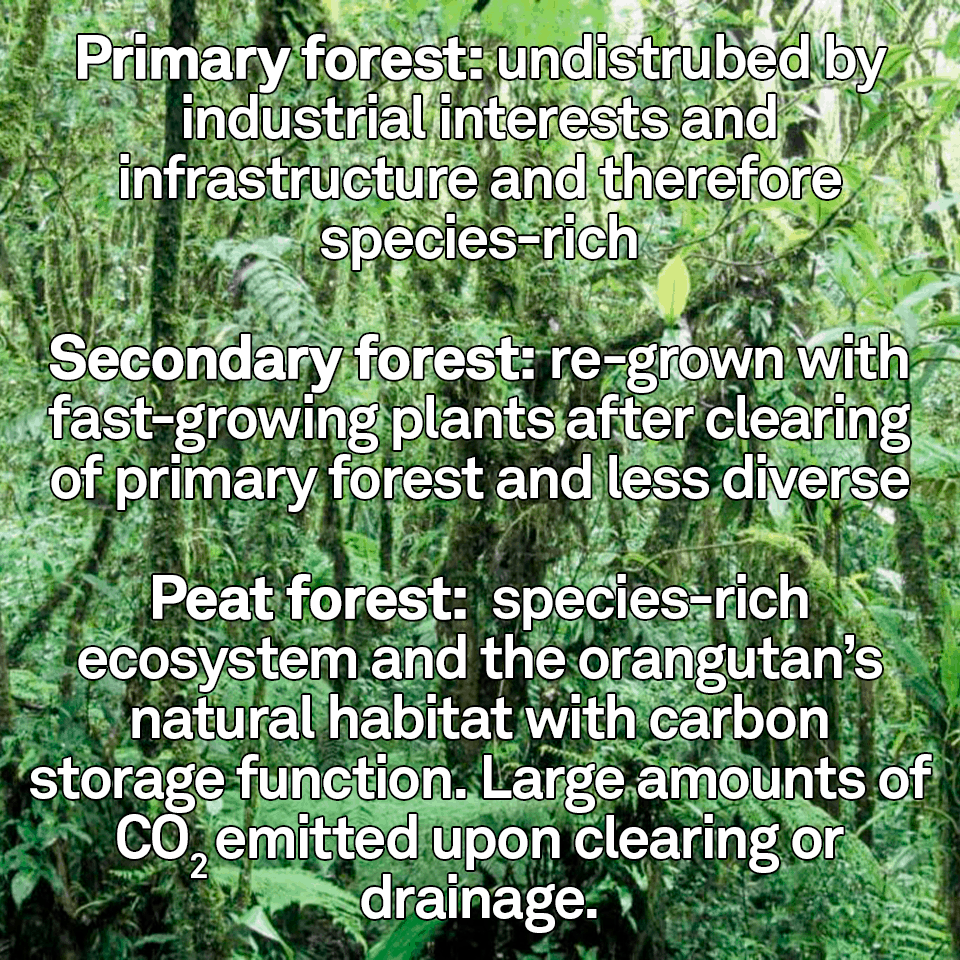Borneo’s nature, climate, and biodiversity may be granted some well-earned relief as the permanence of a temporary ban on clearing untouched rainforest in Indonesia is being discussed. The ban also covers areas preferred by the orangutan as habitats.
A single signature. That is all that is needed now to make a temporary ban on clearing untouched forest in Indonesia permanent.
Environment and Forestry Minister Siti Nurbaya Bakar told the online media Mongabay about the permanent ban. All it takes now is the signature of president Joko Widodo, who was re-elected this spring.
The first temporary ban on converting primary forest and peat forest for oil palm and pulpwood plantations and logging was imposed in 2011 by then president Yudhoyono. Since then, the ban has been renewed three times.
The prospect of a permanent ban is good news to Save the Orangutan.
– The fact that Indonesia now wants to permanently protect untouched forest and peat forest areas, which are the orangutan’s preferred habitats, is great. We hope enforcement of the ban is ensured and that secondary forests will be protected by the ban over time, director Hanne Gürtler says.
Progress after a slow beginning
The temporary ban had very little impact in the first five years after its imposition. Deforestation of areas that should have been protected by the ban still occurred.
However, after a revision in 2016 adding to the ban a nation-wide ban on clearing low-lying peatlands, progress began to show. Last year, 3,400 km2 of forest were cleared in Indonesia – this is the lowest number since 2003.
Additionally, last years’ result was a full 40 % lower than the annual average between 2002 and 2016.
A permanent ban on new licenses for conversion will optimise the protection of the environment and biodiversity, including the orangutan. Arief Wijaya from World Resources Institute Indonesia states that 660,000 km2 of primary forest and peat forest will be protected as a result of the permanence of the current ban.
Next step: secondary forests
However, the majority of wild orangutans in Borneo live in secondary forest areas – areas which are not protected by the ban. Save the Orangutan therefore calls for the inclusion of such areas over time.
– Unfortunately, there are only few primary forest areas left in Borneo. Meanwhile, secondary forest areas are more often than not converted for oil palm and other industrial plantations. We therefore call for the inclusion of secondary forest areas in the ban to avoid a development similar to that on Sumatra. The Sumatran orangutans have few protected forest areas left to make their home, making repopulation of the species very difficult, Head of Programmes Marie Sigvardt explains.
– That is the very reason why the Sumatran orangutan was critically endangered long before its peer in Borneo.
